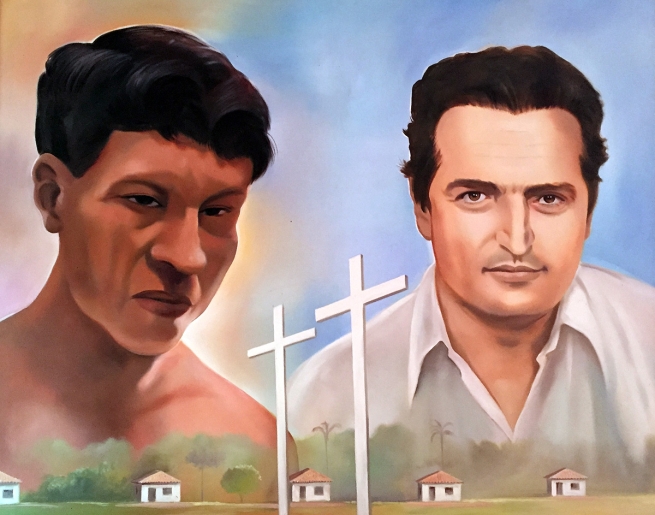In the mid-twentieth century, great projects began to emerge to explore the resources of the interior of Brazil and, to realise them, everything that was an obstacle had to be eliminated. So the most fragile indigenous groups began to ask for help for the nature threatened by agribusiness: the Bororo of Mato Grosso lost their lands, saw their territory shrink and the beautiful landscapes of central Brazil replaced by extensive monoculture fields of soybeans...
It is in this context that young Rodolfo Lunkenbein began his missionary journey in Meruri, an indigenous Bororo village in Mato Grosso. He found a small group already tired of fighting, with no prospects for the future, discouraged. Taking up the new direction of the post-conciliar Church, Rudolph fought for the realization of the program desired by the CIMI (Conselho IndigenistaMissionário): a Church renewed in its missionary work, option for the most disadvantaged, in their case, the indigenous, and struggle for the land.
Until the last moment of his life he worked with the Bororo, preparing the land for plantations; he died with clothes soiled with soil, sweat and stained with blood... the land he tried to recover so that the Bororo could live in peace and harmony. In this supreme moment his friend Simão was not afraid to risk his life going to defend him; he died hours later forgiving his murderers. Simão, an indigenous missionary among his people, bricklayer and builder of houses, who knew the secret of the herbs of the countryside, who knew how to treat them and cure and soothe ailments and diseases with them. Simão the friend of children; Simão who dreamed of fertile lands filled with birds, animals, fruits and clean rivers... Simão chosen by God for his supreme moment together with Father Rodolfo: martyrdom.
Their memory survives and encourages us to be custodians of creation, living in harmony with nature and at peace with everyone.
The full article is available in the GMS 2023 booklet, in Italian, English, Spanish, French, and Portuguese.



